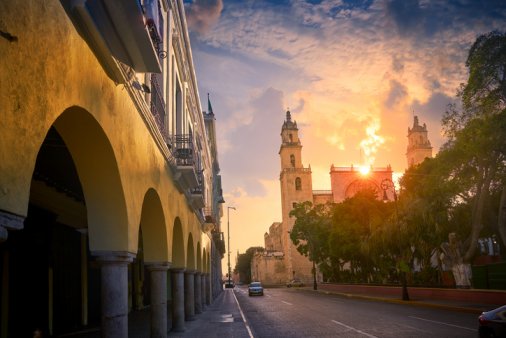How Does Customs Work
Learn how does customs work for travelers and businesses, including inspection procedures, declaration processes, duties, and differences by country.
International Travelers Ask How Does Customs Work?
-
You go through customs when entering a new country, returning home, or during certain layovers.
-
You may be required to go through certain steps at customs: declaration, inspection, and paying taxes.
-
To avoid delays or fines, declare all taxable or restricted items, follow duty-free limits, keep important documents ready, and research country-specific rules in advance.
Visiting a new country is exciting, but before you can actually start the adventure, you have to go through customs. But how does customs work for travelers at the airport? It is a checkpoint where officials check that what you bring in complies with national laws, whether it’s souvenirs, luxury goods, or an extra large stash of snacks. Also, it prevents illegal activities and promotes fair trade practices.
From declarations to inspections and duty fees, understanding the customs process can save you time, money, and unnecessary hassle. Knowing how customs work can help avoid delays and make sure you have a smooth journey without any surprises or penalties at the border.
When Do You Go Through Customs
Customs checks happen at specific points during international travel. Here are the situations when travelers must go through customs.
Upon Arrival in a Foreign Country: When you land in a new country, you must go through customs before you enter. Customs officials will check your luggage and make sure you comply with the country’s import regulations.
Returning to Your Home Country: When you return from an international trip, you must go through customs before you re-enter. Customs officials will inspect your belongings to make sure you comply with national laws.
Customs at Transit or Layover Airports: If you have a layover in another country before you reach your final destination, you may have to go through customs in that country, depending on the airport and your travel route. Some international flights require travelers to clear customs even if they are just passing through, and in some cases, you have to go through customs at your final destination.
Rare Cases of Customs During Departure: Most countries don’t require travelers to go through customs when leaving. However, there are certain situations that may lead to customs checks upon departure. As per the US Department of State, you cannot take out certain items like carrying large amounts of cash, gold & other precious metals, precious & semi-precious stones, religious artifacts, and more. Several countries may require export permits.
Before you start your trip, protect yourself from unforeseen travel situations- get a free quote from AXA Travel Insurance today.
How Does Customs Work
Customs is a compulsory stop for all international travelers. According to the US Department of State, you may be fined or detained at the airport if you do not follow the customs rules.
So, let’s have a quick look at how customs generally work.
Arrival at the Airport
When you arrive at the airport, an immigration official will review your documents, such as your passport, visa, and more. You will also be inquired about your purpose of visit, your length of stay, and where you will be staying.
Follow this legal process first and answer the questions truthfully. If needed, some countries may also take your biometric information, such as fingerprints or photographs.
Declaration
Next, fill out the Customs Declaration Form, which you may receive during your flight or when you arrive at the airport of your destination.
Make sure that you accurately declare all items you are bringing into the country, including gifts, items bought abroad, and anything exceeding the duty-free allowance. Not declaring items can lead to penalties.
Reviewing Documents
Customs officers may review your documents and ask about the purpose of your trip and the items you are bringing into the country, along with the value of those goods. So, make sure that you have your passport, visa, and customs declaration form ready with you.
Also, be honest and straightforward in your answers. If any inconsistencies or undeclared items are found, this could result in further inspections, fines, or even legal actions.
Baggage Claim and Inspection
After completing the documents check, go to the baggage claim area, get your bags, and then take them to the customs inspection area.
Based on your declaration form, customs officers will examine your items to make sure they match what you mentioned in the form. They may use X-ray machines, ask questions about the contents of your bags, or conduct a physical search.
Custom Duties and Taxes
If the quantity of the goods carried is higher than the customs policy, then you need to pay the imposed duties depending on the type and value of the goods.
As failure to pay duties can result in items being seized, make sure that you have local currency to pay the duties and taxes. You can also pay by credit card. Keep receipts of your purchases as you may need to value the goods.
Compliance Checks
The officials conduct compliance checks as well to make sure that you follow the import rules and regulations. This includes checking to see that you do not carry any prohibited items like certain drugs, weapons, or more.
They will also check to see if you act in accordance with agricultural regulations, like restrictions on importing certain food or plants.
Clearance
Your goods will get clearance once you go through the customs process and pay the required duties.
This means you are allowed to enter the country with your belongings. Make sure to keep all your documents handy until you exit the customs area.
Important Tips for Travelers Going Through Customs
Going through the customs can be a hassle, but with the right preparation, you can easily get through the process. Here are some tips.
-
Every country has different rules on what you can bring in or take out. Check the official customs website of your travel destination and understand the restricted or prohibited items, duty-free allowances, and currency limits.
-
If you carry food, alcohol, tobacco, large amounts of cash, or expensive goods, declare everything on the form. Failing to do so can result in fines or confiscation of items.
-
Each country has limits on duty-free items like alcohol and cigarettes. Make sure to follow those limits. Exceeding them will result in additional taxes.
-
Some airports have different lanes for residents and visitors. Make sure that you use the correct lane to avoid delays.
-
Make sure to keep your documents, such as your passport, visa, and customs declaration form, accessible. For high-value purchases, keep the receipts with you to prove their value. If carrying a medicine, then keep the prescription handy.
FAQs About How Customs Work for Travelers
1. Do I need to enter personal items like clothes and electronics in the declaration form?
No, personal items like clothes and used electronics do not need to be added to the declaration form. If you have any high-value electronics or large quantities of goods, then you may need a declaration.
2. How do officers in the customs department know which bags to inspect?
Customs officers use risk assessments, random checks, and X-ray scanners to decide which bags to check. Unusual travel patterns, undeclared high-value items, and suspicious behavior may increase inspection chances.
3. If customs officials detain me, how should I deal with the situation?
You must stay calm, polite, and cooperative with the officials by answering their questions honestly. If needed, request a lawyer or contact your embassy for assistance, especially if you do not understand the reason for detention.

Travel Assistance Wherever, Whenever
Speak with one of our licensed representatives or our 24/7 multilingual insurance advisors to find the coverage you need for your next trip. Contact Here



